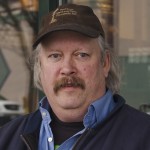Each day, Fred Heutte, lead volunteer for the Sierra Club’s Federal and International Climate Campaign, is providing updates about the day’s events at COP21, the Paris Climate Conference. I will reprint these in this blog with his permission.
WEDNESDAY, DEC. 2 — The day was mostly occupied with Spin-Off Groups and an evening ADP stocktaking plenary that also included COP President Laurent Fabius.
Fabius and the ADP co-chairs expressed concern about the slow pace of the spinoffs. We heard rumors that in fact Fabius was unhappy with the inability of the co-chairs to get more forward motion going on reducing options in the text. But for those with some experience in the process, this is a pretty typically mid-first-week sag.
The problem, however, is that this COP doesn’t have another week and a half to wrap up. The ADP’s work will be done Saturday, and then there are effectively three negotiating days next week to finalize the Paris Agreement.
 THURSDAY, Dec. 3 — The ADP scheduled no less than 18 Spin-Off Groups during the day, a couple lasting as long as six hours. The topics ranged across the entire negotiating text, but again it was evident that only small amount of progress is being made on reducing options and finding convergence where there are two or three different positions.
THURSDAY, Dec. 3 — The ADP scheduled no less than 18 Spin-Off Groups during the day, a couple lasting as long as six hours. The topics ranged across the entire negotiating text, but again it was evident that only small amount of progress is being made on reducing options and finding convergence where there are two or three different positions.
In addition, the cross-cutting aspects of many issues adds to the complexity, because if movement occurs on one issue, it could affect the result in two or more others. With a decade of experience avoiding uncomfortable results of that kind, negotiators again have chosen to play it safe.
Unlike the Spin-Off Groups which are off-limits to observers, the ADP Contact Group had its session on screens in the hall, but the results weren’t any better. This lengthy session was split into two three hour segments, one before and one after lunch, then a break at 6 p.m., and a short stocktaking session.
The upshot was the very eloquent recital of very long-standing positions, and no apparent movement on almost any of the key questions. While it was always expected that negotiators would be very cautious, things have moved slower than anyone hoped this week.
Compilation Text
Thursday morning, the co-chairs released a temporary compilation text, but only reduced the length by about four pages. Now the hard part starts.
Thursday evening, facilitators for the Spin-Off Groups generally reported that progress was starting to be made but more time is needed.
But at long last, after four years and 12 official sessions of the ADP (some stretching across more than one meeting period), there is no more time for Spin-Off Groups and other informal meetings. And now the ADP Contact Group will meet continuously on Friday to consider the new revised text and a separate document with bridging proposals, and try to make real progress by late Friday night.
Article 2
One important element does seem to be moving in the wrong direction. Along with environmental and labor colleagues, the Sierra Club worked strenuously this week on Article 2 (Purpose of the Paris Agreement) to preserve the language referring to protection of natural ecosystems, just transition of the workforce and creation of decent work, human rights for all, including indigenous peoples, and gender equality.
The language was in part the result of efforts across all of civil society last year to come up with a package approach covering the social and economic rights of all sectors. But the language has been stuck in a battle between countries wanting it in the legally effective “operational” part of the text such as Article 2, influencing all of the other parts, or the legally inconsequential Preamble.
The rationale is that these aspects of rights and responsibilities are not part of “the purpose of the Agreement” — as stated in the “long term goal” of the first part of Article 2.
But the Club and many others have been arguing that including this language is essential to show that the climate transition must not only be effective in reaching the long term goal, but fair in how the world gets there. The Paris Agreement will be decided by governments, but only the people can give it life.
It all started Sunday evening when Norway proposed moving the language out of Article 2 elsewhere — to the adaptation text, and maybe the text on technology, or mitigation — well, it wasn’t entirely clear.
But today, the United States (which supports the elements but only if they are in the Preamble) joined Norway in blocking compromise language — and it appears this will tip the balance toward moving the language to the Preamble, where it is still vulnerable and not actionable. While work continues in some of the thematic areas like adaptation to incorporate this “keystone” text, some hope remains because both Brazil and Canada signaled strong support for keeping the language in Article 2.
State of Play Dateline
[x] Sunday 29 ADP pre-plenary
[x] Monday 30 COP opening plenary – Leader Event
[x] Tuesday 1 COP/CMP joint plenary, SBI and SBSTA opening plenaries,
start of ADP contact group and spinoffs
[x] Wednesday 2 – Spin-Off Groups, ADP stocktaking
[x] Thursday 3 – Spin-Off Groups, ADP stocktaking
[ ] Friday 4 – revised ADP text 8 a.m.
[ ] Saturday 5 closing ADP plenary, COP plenary
[ ] Sunday 6 [COP 21 closed]
[ ] Monday 7 High Level Segment
[ ] Tuesday 8 High Level Segment
[ ] Wednesday 9
[ ] Thursday 10
[ ] Friday 11 closing COP plenary
further info: phred@sunlightdata.com
